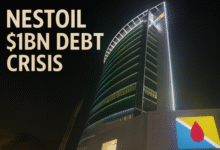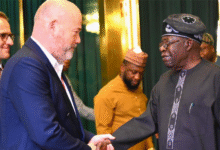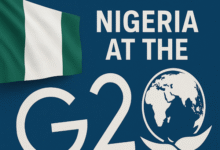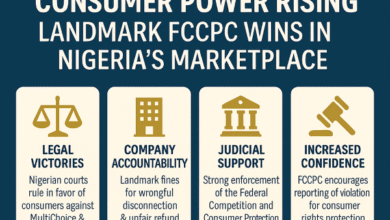Meta’s Exit Threat: Is It Time for Nigeria’s Own Social Media Giants?

In the wake of Meta’s veiled threat to shut down Facebook and Instagram services in Nigeria, a growing number of social media users, digital entrepreneurs, and policymakers are calling for the urgent creation of indigenous social networking platforms—a bold move that could redefine Nigeria’s digital sovereignty, data protection, and tech ecosystem.
The debate was reignited after Meta, the parent company of Facebook, WhatsApp, and Instagram, hinted at the possibility of halting operations in the country following a $220 million fine upheld by the Competition and Consumer Protection Tribunal in July 2024. The ruling stemmed from alleged violations of Nigeria’s data protection and competition laws, including unauthorised sharing of user data and discriminatory practices against Nigerian users.
Regulators vs Big Tech: The Meta Fallout
Meta’s combative posture is not without precedent—globally, the company has clashed with several governments over data sovereignty and competition laws. However, Nigeria’s firm regulatory stance, spearheaded by the Federal Competition and Consumer Protection Commission (FCCPC), marks a significant moment in the continent’s evolving relationship with Big Tech.
The FCCPC not only dismissed Meta’s exit threat as “tactical and diversionary,” but also doubled down on its enforcement actions, insisting that compliance, not coercion, will determine the path forward.
“The threat will not exonerate Meta from the penalties imposed. The law must take its course,” FCCPC stated.
The Bigger Picture: Why Local Platforms Matter
While the exit threat may appear to be a business standoff, it has catalysed a broader national conversation on digital independence. Social media users interviewed across Abuja and other cities argue that Nigeria must invest in building homegrown platforms that not only serve local needs but also uphold national values and data protection protocols.
Digital user and policy advocate Moses Atuegwu summed it up bluntly:
“We can’t continue to be at the mercy of foreign platforms that don’t respect our laws. We need indigenous alternatives—built by Nigerians, for Nigerians.”
The sentiment was echoed by Pearl Adekunle, who pointed to global examples:
“China has WeChat. Russia has VKontakte. These platforms protect local interests and create jobs. What stops Nigeria?”
TECH INSIGHT: What It Would Take to Build Nigeria’s Own Meta
Creating a viable indigenous social network is not just a patriotic gesture—it’s a strategic tech-economic imperative. However, success depends on more than just enthusiasm. It requires:
1. Funding and Infrastructure
- Developing scalable platforms demands significant upfront capital, cloud infrastructure, and cybersecurity investment.
- Public-private partnerships, government grants, and Nigerian VC ecosystem support are key to viability.
2. Talent and Engineering Power
- Nigeria boasts a robust pool of tech talent through hubs in Lagos, Abuja, and Port Harcourt.
- But scaling a secure, engaging platform like Facebook or TikTok requires deep tech capacity in AI, UI/UX, and backend engineering.
3. User Trust and Adoption
- Indigenous platforms must compete not just on sentiment, but on user experience, content diversity, and functionality.
- Trust will hinge on transparent data policies and user-driven moderation—the very issues Meta was penalised for.
4. Regulatory Alignment
- Platforms must be NDPR- and FCCPA-compliant from Day 1, not retrofitted after launch.
- A regulatory sandbox could help developers innovate while remaining within the law.
Meta’s Dominance: A Double-Edged Sword
Meta’s platforms command tens of millions of Nigerian users across WhatsApp, Instagram, and Facebook—making the threat of an exit not just symbolic, but potentially disruptive to businesses, media, and interpersonal communications.
“We rely on these tools for business, advocacy, and even emergency communication,” said user Esther Indiana-Obong.
“We need a backup, but it must be globally competitive.”
Indeed, Nigeria’s tech economy has been over-leveraged on foreign platforms, with limited local alternatives. The exit threat should now serve as a wake-up call to tech founders, investors, and regulators alike.
BRANDECONOMY OUTLOOK: A Digital Sovereignty Revolution in the Making?
The Meta saga might yet become the inflection point for Nigeria’s digital economy. The country has the market size (over 120 million internet users), a rising middle class, and a dynamic startup ecosystem led by names like Flutterwave, Kuda, and PiggyVest. Social media, however, remains one frontier largely untouched by indigenous innovation.
If approached with vision, structure, and strategic investment, Nigeria could birth its own social networking unicorn—one that respects national laws, champions local content, and scales across Africa.
Final Thoughts: The Age of African Tech Sovereignty Has Begun
Meta’s exit threat is more than a legal tussle—it’s a national opportunity. An opportunity to build self-sustaining digital infrastructure, promote data dignity, and ignite technological innovation from within.
As Nigeria stands at this digital crossroads, the question is no longer “if” but “how soon” we’ll see a proudly Nigerian social platform rise to fill the vacuum—and possibly redefine Africa’s digital future.
Stay with BRANDECONOMY for expert-driven stories at the intersection of tech, business, policy, and innovation—where Africa’s future is being built, one byte at a time.











